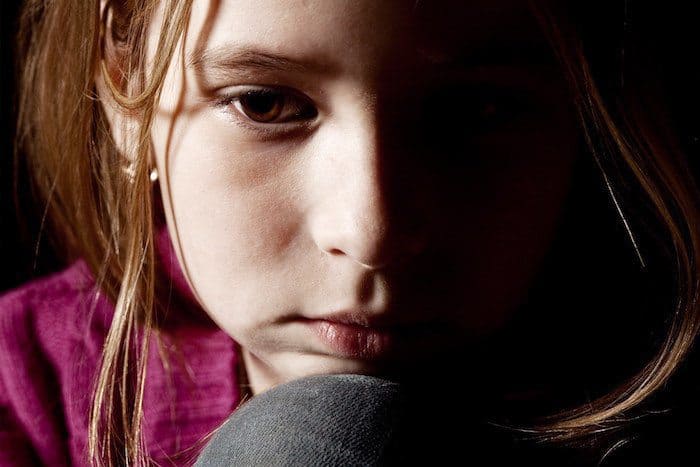
[ad_1]
Low self-esteem in children leads to adults with low self-esteem.
In fact, low self-esteem is one of the main reasons that people enter therapy with me.
The reasons that they have developed low self-esteem are often varied.
Despite this, there seem to be some common themes that individuals with low self-esteem share.
These are concerns that have plagued them, often their whole life, and followed them into their adult life.
Understanding what causes self-esteem in children will help these clients work out their emotions.
Otherwise, they will continue to lose opportunities if it is not worked out.
If you are struggling with low self-esteem, it is encouraged that you seek some type of help and support to work through this problem.
Therapy will help you be the best version of yourself that you can be.
It will also help future generations of children grow up with better self-esteem.
So what are these common themes that cause low self-esteem?
Struggling academically without parental or scholastic support increases low-self esteem in children
Children who have a hard time in school or even in a particular subject are at an increased risk of suffering from low self-esteem.
Especially if they do not receive the help and support they need at school or at home.
Reach out to your child’s teacher and guidance counselor to discuss the issues.
They feel “stupid,” and ill-equipped.
These kids have no way of knowing if others are struggling as well, but they often feel like they are the only person who does not understand.
This makes them feel like they cannot be successful, and that they are not smart at school.
The sad thing is that with a little support, this issue can often be resolved.
All it takes is an adult figure to notice they are struggling and intervene.
While parents and teachers are over-worked and tired themselves, perhaps if they understood the long-term implications of the matter, they would find a way to help.
Often it does not take much to help the student and turn the situation around.
Have a conversation with your kids about bullies and not putting stock in other people’s opinions.
Bullying is another cause of low-self esteem in children
Children and teens who are bullied, teased, and put down develop a negative self-image that can carry over into their adult lives.
If parents, other trusted adults, or a solid peer group do not step in to undo the damage that a bully is causing, the individual can hold on to this pain.
This pain can cause a negative self-image that lasts a lifetime.
A child that is told they are fat and stupid just a single time can hold on to that belief throughout their lives.
They believe what the bullies are saying and internalize it.
Some even believe that they deserve it.
There are so many individuals who grow up with low self-esteem and a negative self-image because not a single person stepped in and stood up for them.
Someone telling them that what they were being told was not true could have made a difference.
Such a simple act of kindness or courage could change the way an individual views themselves for the rest of their lives.
At a minimum, they know that there was someone in their lives that cared enough to tell them differently.
Praise your kids daily, and make sure they see you offer praise to strangers throughout the day.
Another cause of low-self esteem in children is suffering trauma during a developmental time
This could be physical, emotional, or sexual abuse.
These kids need help to work through the trauma at this essential point in their lives.
Otherwise, the trauma could have a permanent impact on the way the individual sees and feels about themselves.
Trauma can make the person feel like they did something wrong.
They might feel like they were not good enough, or as if they deserved the abuse.
Being physically or emotionally violated leads many to believe that it was their fault.
Even if they know it was not, they know no one stepped in and protected them or stood up for them.
This makes them feel like they were not worth that protection, or that there was a reason they were traumatized.
If they do not get help to work through these issues, they won’t learn that what happened was wrong and undeserved.
Instead, these issues of low self-esteem and low self-worth follow them throughout their lives.
Despite progress, we still present young people with unrealistic images of what they should look like, and what makes people popular.
From airbrushed pictures to models with unattainable figures, youth are left believing that this is what they are supposed to look like.
Then they feel worthless if this is not what they can achieve.
Social media presents them with poor role models who are famous for displaying negative behaviors.
These people are praised for accomplishments that are not admirable.
However, when the person cannot accomplish even a fraction of what they see, despite their hard work, they feel like a failure.
They do not realize that what they are comparing themselves to is not reality.
It is not easily attainable.
They are left thinking that they are a failure because no one has stepped in and explained that what they are seeking is not reality.
Teach them it is ok to chase their dreams but show them how to make an actual goal.
Adults can point out what their kids have achieved.
These same adults should help them set realistic goals that make them feel good about themselves.
Encourage them and give them the tools they need for success.
We can all do our part to help improve the self-esteem of the children around us.
Let’s ensure the future generation has the right foundation to grow!